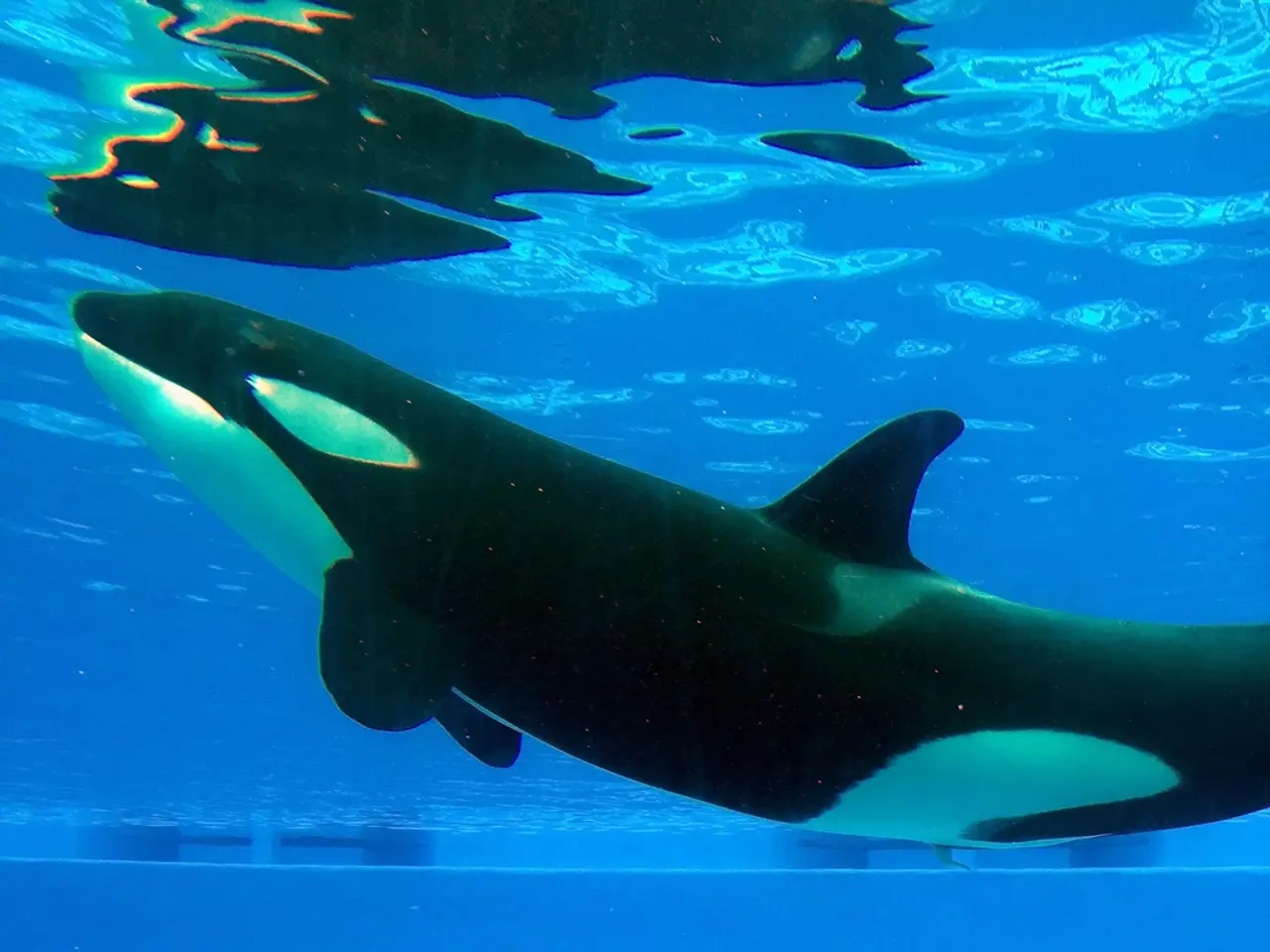Whale Experiences Fatal Collision with Boat in New Jersey, Resulting in Passenger's Ejection
A minke whale has tragically died off the New Jersey shore on Saturday afternoon, following a collision with a small boat in Barnegat Bay. The incident was partially captured on social media, showing the whale splashing violently near the motorboat after the impact. The boat rocked dangerously, nearly capsizing, and a person was thrown overboard. The person ended up in the water, treading beside the vessel.
The dead minke whale was discovered on a sandbar in shallow waters hours later. Visibility was very limited in observing the whale's condition, but the side that was observed had no obvious marks. Unverified reports suggest that the minke whale may have been injured before the collision.
Marine responders were unable to approach the carcass immediately due to low tides. The dead whale will be towed to a state park on Monday morning for a necropsy, which will determine the exact cause of the minke whale's death.
This incident raises concerns about whale safety along the US east coast, particularly in areas where marine life is commonly spotted. Boat traffic regulations in such areas focus primarily on vessel speed limits and careful navigation to reduce vessel strikes and disturbance.
Key rules include mandatory speed limits of 10 knots or less for vessels over 65 feet during certain times and locations, especially during whale season. For example, Massachusetts enforces seasonal vessel speed limits in Cape Cod Bay during March through May to protect right whales. These regulations aim to lower the risk of collisions, which are a major threat to whale populations.
NOAA Fisheries and state agencies like Massachusetts’ Division of Marine Fisheries implement these measures. NOAA also promotes voluntary whale watch guidelines such as minimizing speed and wake, avoiding sudden turns, not encircling or approaching whales from surprising angles, and limiting time spent near animals to reduce stress. The Whale SENSE program certifies responsible whale-watching companies that follow these best practices to prevent harassment and protect marine mammals.
These combined federal and state regulations and voluntary programs seek to balance safe boat traffic and marine life conservation along the East Coast, addressing the endangered status of species like the North Atlantic right whale under the Endangered Species Act and the Marine Mammal Protection Act.
Sources: - NOAA Fisheries: North Atlantic right whale protection efforts and vessel speed rules ([1]) - Whale watching guidelines and best practices for minimizing impact ([3]) - Whale SENSE program promoting responsible whale watching ([4]) - 2022 incident where a boat operator was fined $14,250 for exceeding speed limits designed to protect whales ([2])
News about the deceased minke whale has sparked discussions on the safety of marine life, particularly car-accidents involving boats. General-news outlets report that the incident has highlighted the need for stricter boat traffic regulations, especially during whale seasons, to reduce accidents and risks of collisions, which can be a major threat to whale populations like the North Atlantic right whale. Marine agencies like NOAA Fisheries and Massachusetts’ Division of Marine Fisheries are working to implement such regulations and promote voluntary whale watch guidelines to balance safe boat traffic and marine life conservation.








